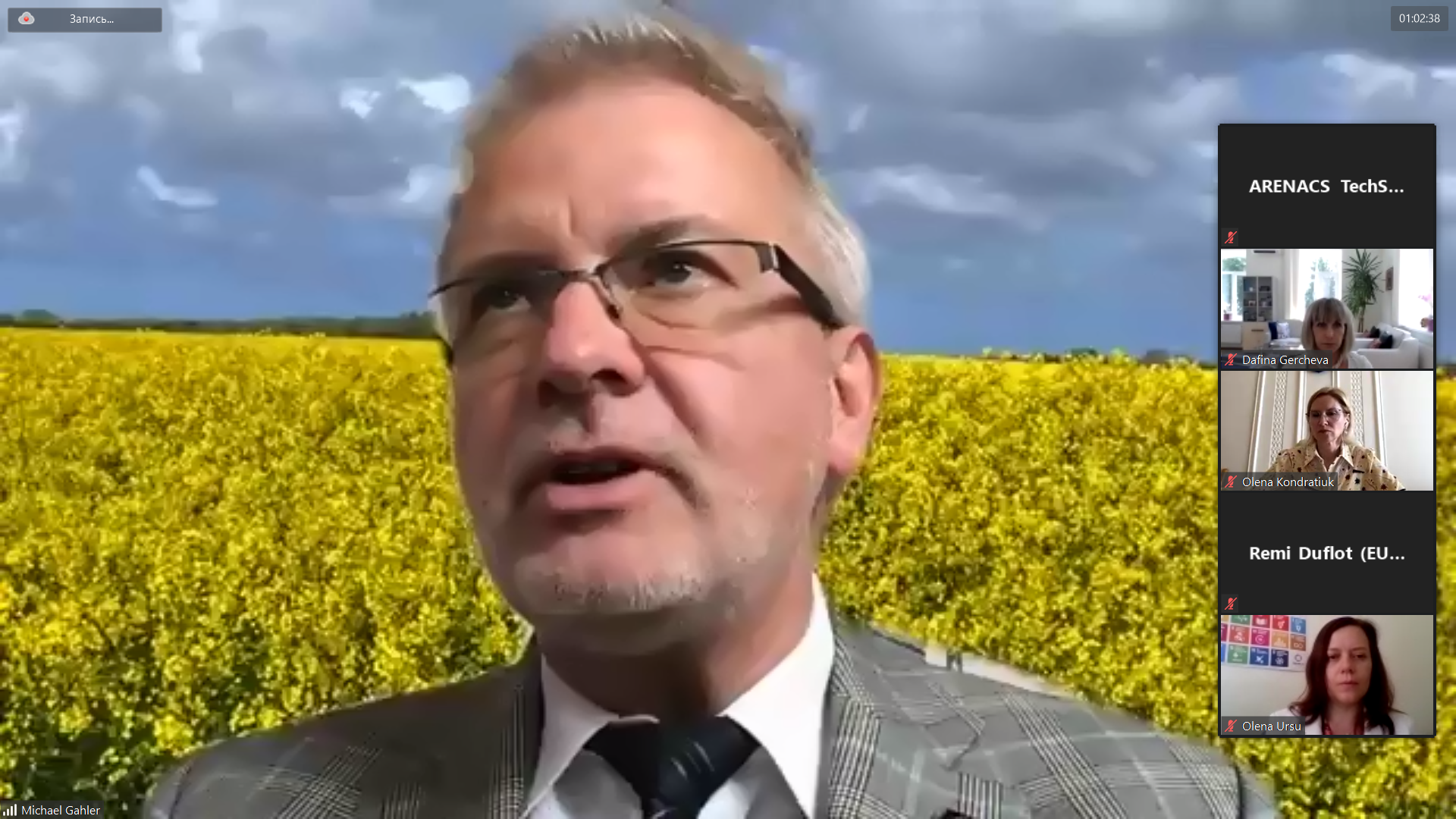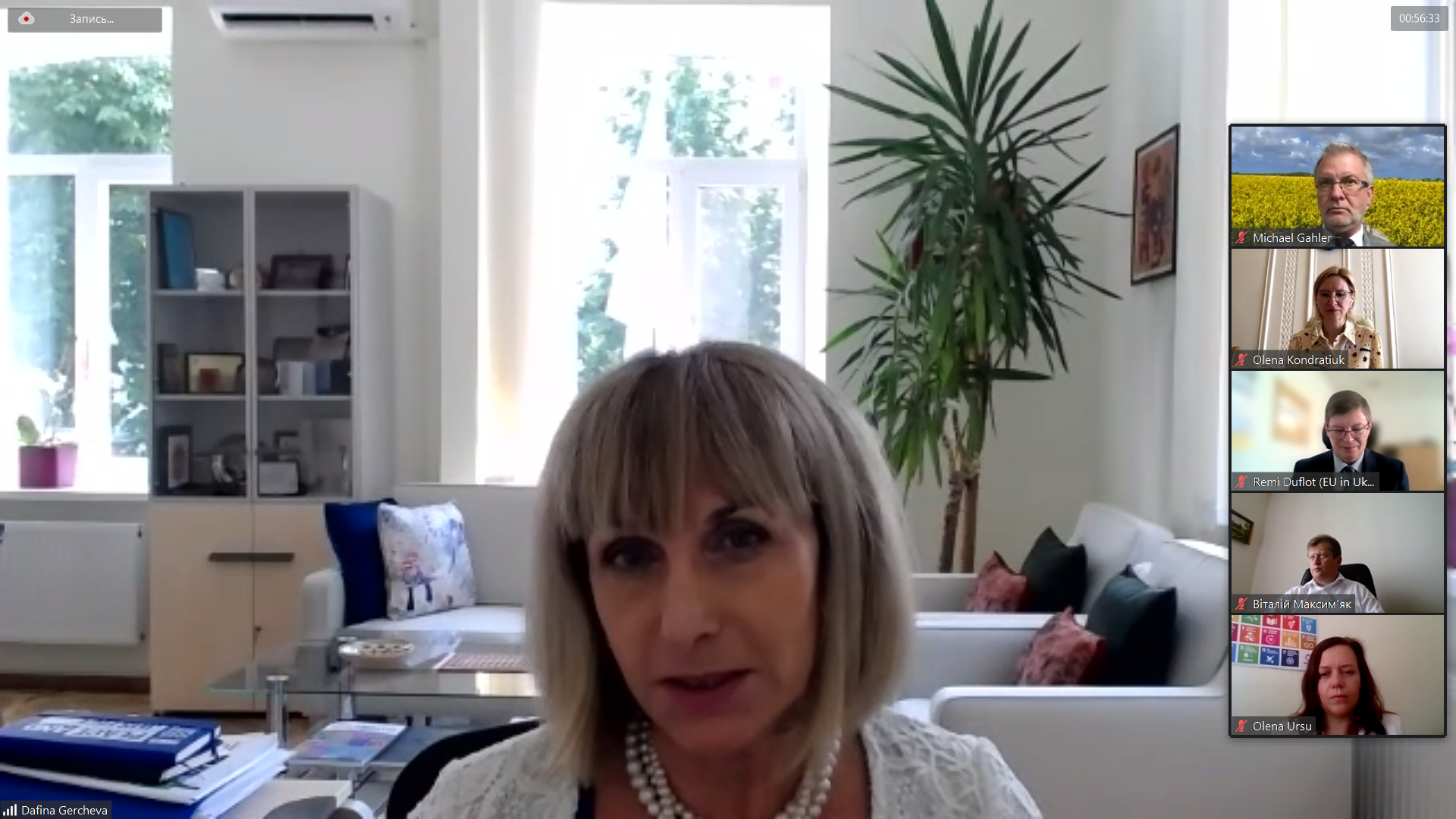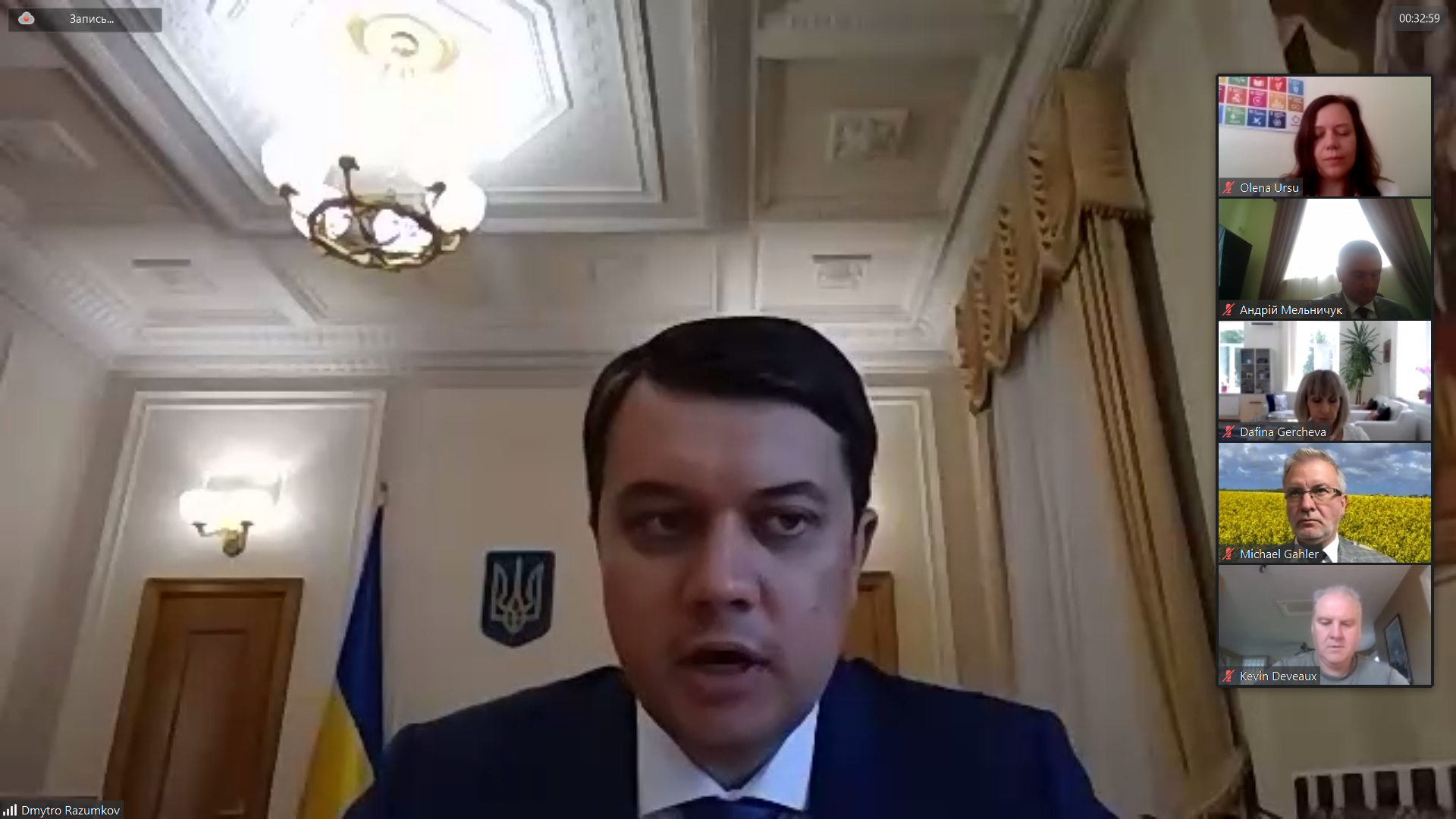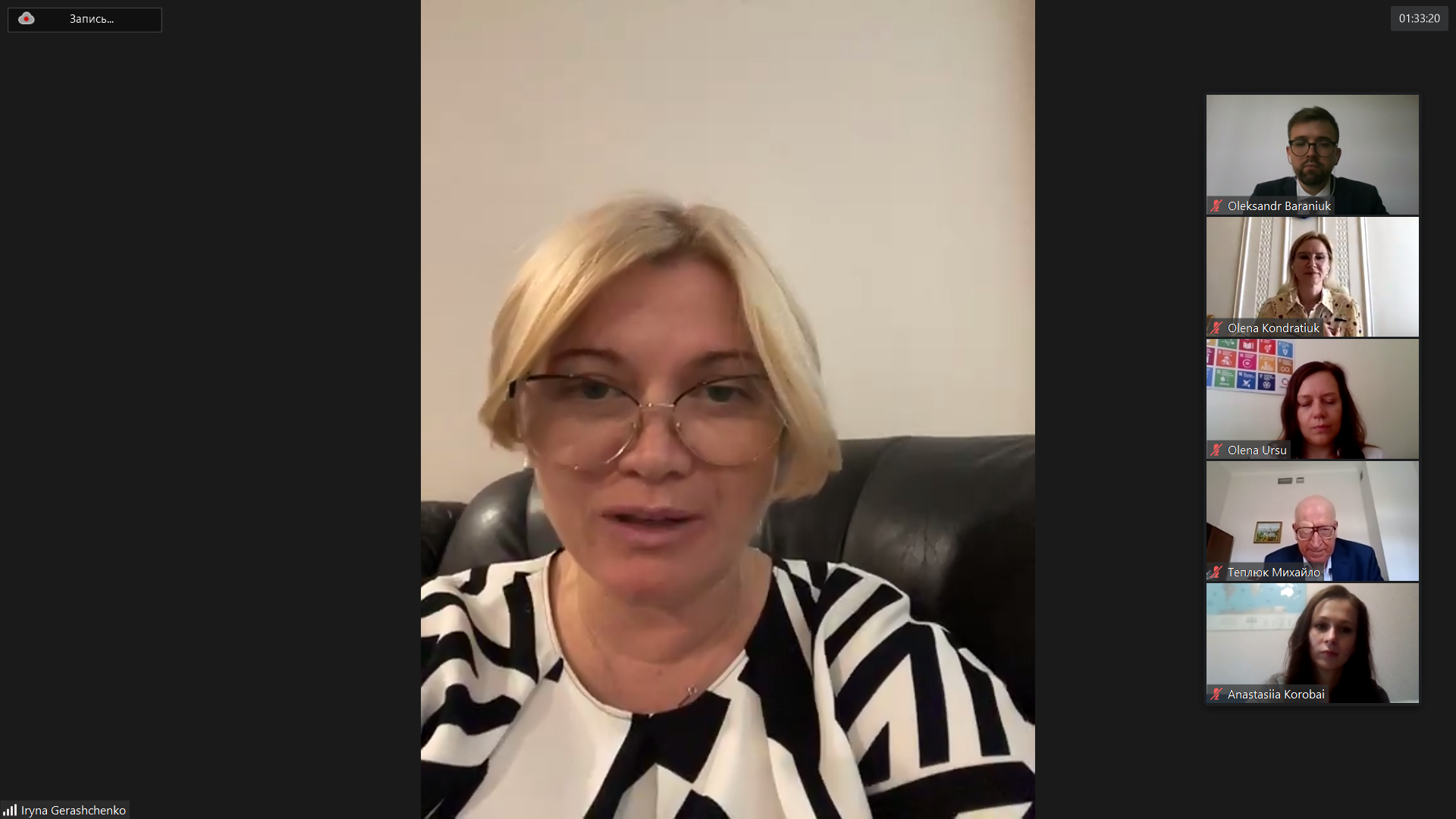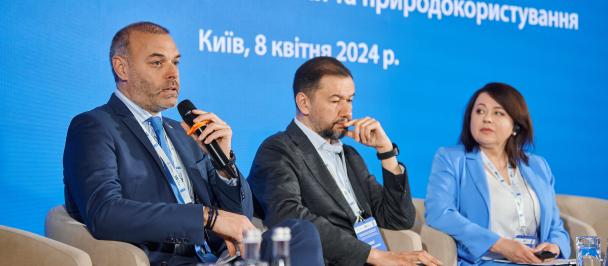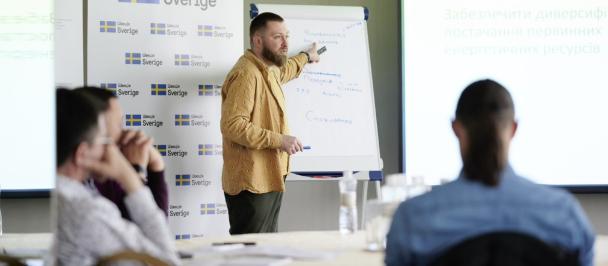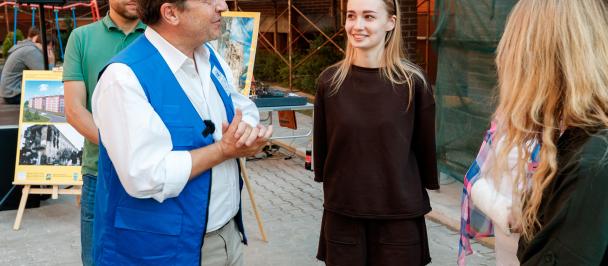Participants of online meeting exchange opinions on recent progress and potential priorities for further parliamentary reform
Photo credit: Ivan Dobronosov
KYIV, 14 July 2021 – The leadership of the Verkhovna Rada gathered online with MPs and experts from home and abroad to discuss progress made under the Ukrainian parliament’s action plan for internal reform and capacity building.
The top officials leading the meeting included Verkhovna Rada Chairman Dmytro Razumkov, his deputy Olena Kondratiuk, Member of the European Parliament Michael Gahler, Deputy Head of the Delegation of the European Union to Ukraine Rémi Duflot, and United Nations Development Programme Resident Representative in Ukraine Dafina Gercheva.
During the meeting, participants presented their opinions on the progress and priorities of parliamentary reform in accordance with parliament Resolution No. 1035-VIII of 17 March 2016 “On actions to be taken to implement the recommendations concerning internal reform and increasing the institutional capacity of the Verkhovna Rada of Ukraine”.
Opening the meeting, Rada Chairman Razumkov noted the importance of discussing the strategic, institutional and financial framework for parliamentary reform, and thanked MPs and the Rada’s EP, EUD, and UNDP partners for their consistent support in implementing these reforms. He said that because of this support, the Verkhovna Rada of Ukraine of the 9th convocation had been able to implement a number of initiatives to make the work of parliament more effective.
"These included the provision and effective implementation of parliamentary control, through the adoption of the relevant draft law, as well as strengthening parliamentary communications and improving the activities of the Secretariat of the Verkhovna Rada," Razumkov said.
In his remarks, Member of the European Parliament and Democracy Support Lead Member for Ukraine Michael Gahler said parliaments were living organisms, which “need to change and adapt in order to better reflect the realities of their times.” He said this was particularly true for parliaments like Ukraine’s, which hold a “a very specific type of responsibility in spearheading a country’s transformation and democratic consolidation.”
Gahler singled out two elements as “the most important ingredients in a successful institutional modernisation.” First, “the Rada’s own ownership of the vision for reform, and a strong commitment to the necessary steps in order to get there,” and second, a reform that must remain broad and comprehensive – on the one hand by “supporting the ways in which the parliament functions as a political body, and the ways in which MPs carry out their constitutional functions,” and on the other hand, by “supporting the ways in which parliament functions from the institutional point of view, and the way in which the parliament Secretariat enables this.”
In his opening comments, the EU Delegation’s Duflot said parliamentary reform in Ukraine was not standing still, and that parliament’s Action Plan for Internal Reform and Capacity Building continued to be implemented.
He also stressed that strong political support for the reform process, as well as regular, inclusive and transparent meetings of the Working Group on the Implementation of the Action Plan on Verkhovna Rada of Ukraine Internal Reform and Capacity Building, are important for further implementation of parliamentary reform.
“In moving forward, there is an opportunity to review and reflect on the state of internal reform, and if necessary, adjust its action plan, in close cooperation with political and administrative stakeholders in the Verkhovna Rada,” Duflot said.
“For that, restoring a structural dialogue on the key parliamentary reform issues is critical, and in line with the initial implementation approach of the Action Plan on Verkhovna Rada of Ukraine Internal Reform and Capacity Building.”
UNDP Resident Representative Dafina Gercheva, in her opening remarks, noted that Ukraine had launched an ambitious reform package and was continuing to consolidate its democracy, including its government institutions and parliament.
“The Verkhovna Rada of Ukraine is at the centre of this process,” Gercheva said. “It’s also the place where commitments like the UN’s Sustainable Development Goals are translated into legislation. For example, Goal 16: Peace, Justice, and Strong institutions is an end in itself, as well as the means to achieve all other goals.”
“In the spirit of partnership, UNDP is ready to support these strategic discussions and to continue providing advocacy and top-notch technical assistance to realise the parliamentary reform agenda in Ukraine,” Gercheva added.
“UNDP is offering its global experience in parliamentary development assistance and its long-standing partnership with allies, like the European Parliament, the Inter-Parliamentary Union, and the Global Organization of Parliamentarians against Corruption.”
Following the meeting, it was suggested that follow-up meetings be convened to discuss the legislative process, parliamentary oversight, strengthening the capacity development of the parliament Secretariat, information technology, communications, and parliamentary education.
The outcomes of these discussions are expected to help in updating the vision for parliamentary reform.

 Locations
Locations